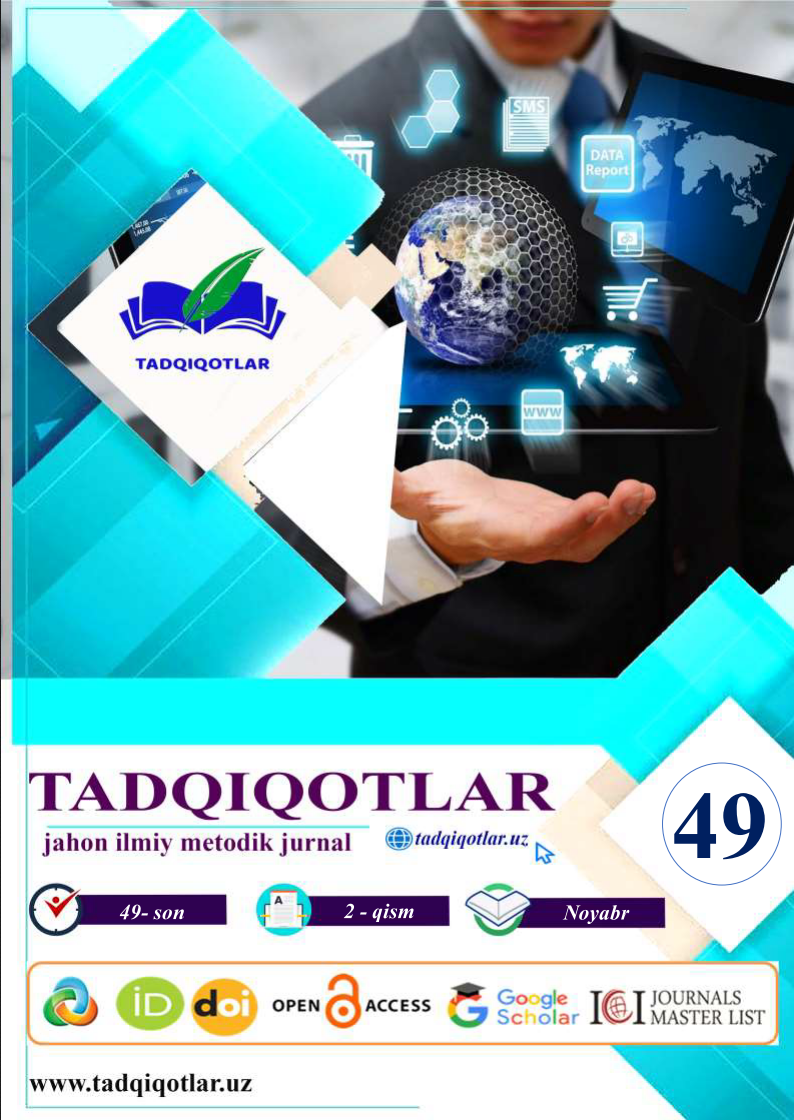SCIENTIFIC METHODS OF PRE-SCHOOL PEDAGOGICS: THE SYSTEM OF PRESCHOOL ORGANIZATION IN UZBEKISTAN
Keywords:
Keywords: pre-school education, early childhood education, ECE, child’s development, Uzbekistan.Abstract
Abstract. The author of the article attempts to analyze the current pre-school
education system of Uzbekistan, its main challenges, shortcomings and reforms.
Moreover, this research will provide the study of the importance of learning at early
ages (3-5) and its impact on the future learning and personal development of children.
The research highlights the analysis of domestic and foreign prospects of the studied
issue. Namely, the researcher presents the view that developed countries pay more and
more attention to boost the quality of pre-school educational institutions, the efficiency
of curriculum, and implementation of more social activities to enhance the
development of children’s soft skills; however, this is not the case in developing
countries such as Uzbekistan.
Thus, the goal of the paper would be to elaborate on the need to consider,
remodel and upgrade the pre-school education system further and trigger to start some
campaigns which will aim to develop young mother’s personal and professional
development. The study will highlight the impact of pre-school education by evaluating
the literature in the field, looking deeper at the experience of developed countries as
well as considering the situation in Uzbekistan regarding the mentioned area. The
findings of the paper can be deployed to prepare educational policy and contribute to
the development of the entire education system of Uzbekistan.
References
REFERENCES
1. The science of early childhood development. Center on the developing child, Harvard
University, 2007.Available at: https://developingchild.harvard.edu/resources/inbrief-
science-of-ecd/.
2. Starting well. Talent&Education. Economist, 2012. Available at:
https://eiuperspectives.economist.com/talent-education/starting-
well#:~:text=At%20its%20core%2C%20the%20Starting,quality%20of%20such%20pres
chool%20environments.
3. Burlacu F. The importance of pre-school education in child development. Euromentor
Journal - Studies about education, 02 (2013), 153-165.
4. Taiwo A.A., Tyolo J.B. The effect of pre-school education on academic performance in
primary school: a case study of grade one pupils in Botswana. International Journal of
Educational Development, 22 (2002),169–180.
5. Bibi W., Ali A. The Impact of Pre-school Education on the Academic Achievements of
Primary School Students. The Dialogue, 7 (2) (2012), 152-185.
6. Sparks S.D. Striking a Balance on Early Rigor. Education Week Spotlight on Critical
Thinking, (2015), 2-4.
7. Brophy J.E. Effective schooling for disadvantaged students. In: Knapp M.S., Shields P.M.
(Eds.) Better schooling for the children of poverty. CA: Mccutchan Publishing, Berkeley,
2006.
8. Bakken L., Brown N., Downing B. Early Childhood Education: The Long-Term Benefits.
Journal of Research in Childhood Education, 31 (2) (2017), 255-269. doi:
10.1080/02568543.2016.1273285
9. Sylva K. et al. The Effective Provision of Pre-school Education (EPPE) Project: Findings
from pre-school to end of key stage 1. United Kingdom: Department for Education and
Skills, Nottingham, 2004.
10. Hanushek E.A., Woessman L. The role of cognitive skills in Economic Development.
Journal of Economic
11. Literature, 46 (3) (2008), 607–668. Available at: www.aeaweb.org/articles.php? doi:
10.1257/jel.46.3.607




